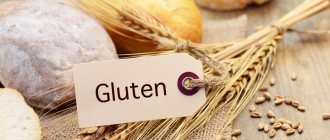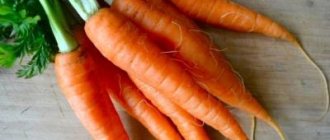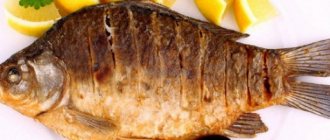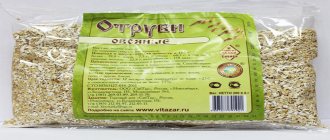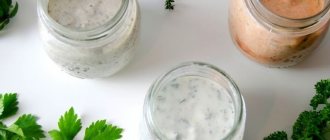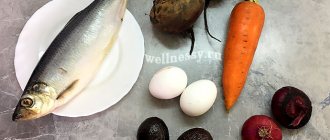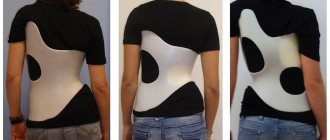How to replace protein?
For those who continue to consume milk and eggs, such a replacement will not be difficult, since these products contain enough protein, minerals and vitamins the same as those found in meat and fish. For vegans who have abandoned these products, a replacement for animal protein should be sought in products of plant origin with a high content of similar microelements.
- soybean _ Eating this product will replenish the body's need for protein, amino acids and iron.
- legumes (peas, lentils, beans, chickpeas). The high content of plant protein in these products can be a good replacement for animal protein for vegetarians
- seeds of pumpkin, hemp and some other plants, used both as seasonings and as an independent product
- Peanut butter is a source of a number of beneficial substances for the body.
- nuts , including walnuts, almonds, pistachios and hazelnuts, in the absence of allergies, can fill a person’s need for protein and other nutrients
- buckwheat , which due to its properties can compensate for iron deficiency
- oat bran
- spinach, broccoli, potatoes, asparagus, cauliflower and a number of other vegetables that replenish one or another useful element in the diet, and some - several at once, in addition to proteins
- dried fruits (dried apricots, prunes) and fruits (cherries, bananas, avocados, which in such a diet can also be a supplier of amino acids and fats)
The ideal food combination for a vegetarian to replenish protein in the body is legumes and grains, such as rice and lentils, beans and corn, or other combinations that suit a person's taste and preference.
The value of plant and animal proteins
Protein is a complex of amino acids of varying digestibility (biological value). We can only get some essential amino acids from food. Therefore, special attention is paid to the quality composition of protein products.
Protein deficiency leads to disruption of muscle structures: the heart muscle suffers, the elasticity of vascular muscles decreases, etc. For normal functioning of all organs, the recommended daily dose is 1 gram of protein per 1 kg of weight. In other words, an adult weighing 75 kg should receive at least 75 grams of protein per day from food.
How to correctly create your menu from foods of plant and animal origin? Each person decides this independently, taking into account his preferences and capabilities. When creating a diet, it is worth knowing that the value of animal and vegetable protein differs.
Animal protein, unlike plant protein, contains the entire list of essential amino acids. This is the main difference that underlies the rules for preparing vegetarian and other diets. Meat protein contains 8 essential acids with good biological value and excellent digestibility. Plant foods can sometimes contain more protein than animal products, but may be deficient in one of the amino acids. Low digestibility of the remaining components present reduces the biological value of food. The protein in such products is not enough for the normal functioning of the body.
A striking example of an incorrect approach to the formation of a protein diet is a complete transition to buckwheat. In terms of protein content, buckwheat can compete with eggs: 12% per 100 g of product. But, if eggs have a full composition of amino acids, then buckwheat does not contain enough lysine. As a result of such a diet, our body experiences a deficiency of quality protein. Therefore, nutritionists do not recommend mono-diets. To achieve an optimal balance of all nutrients, a combination of several healthy products is necessary.
Iron
Iron is another important micronutrient found in animal foods.
How can you compensate for this important element, relying only on plant foods:
- vegetables that are high in iron, such as cabbage, broccoli, celery, spinach and lettuce
- legumes, especially those rich in iron (black beans, lentils)
- raisins, which contain more iron than other dried fruits, rich in other beneficial vitamins and minerals
- oatmeal. Among grain crops, it is the most optimal supplier of iron to the human body.
- nuts you should choose cashews
- seeds of some plants, such as sunflower or hemp
- soy. Its usefulness and saturation with micro- and macroelements important for proper nutrition is beyond doubt.
- tomato juice, which adds variety to a vegetarian's diet, is easily accessible and high in iron
- whole grain bread. Due to its structure and beneficial properties, it is an important component of a proper nutrition program not only for vegetarians, but also simply for people who adhere to proper nutrition
In order to increase the absorption of iron in the human body, it is important to combine foods high in iron with those rich in vitamin C. For example, citrus fruits, bell peppers, kiwi, etc.
"Animal" foods high in protein
As noted above, animal protein has a more complete composition of amino acids. Animal proteins are involved in the synthesis of nerve cells, and a deficiency of this protein in the body increases the risk of stress and diseases of the nervous system.
Animal protein is found in the following food groups:
- meat and meat by-products
- Fish and seafood
- dairy
- eggs
Illustrative examples of the protein content in a particular product are given in the table:
| Products | Protein content per 100 g |
| Beef | 22-23 |
| Pork | 19-20 |
| Turkey | 23-25 |
| Chicken | 20 |
| Pork liver | 19 |
| Chicken liver | 17 |
| Salmon | 25-26 |
| Chum salmon tuna, sardines | 22-24 |
| Crabs, shrimp, mussels | 19-20 |
| Mackerel, herring, mackerel, mussels | 18-19 |
| Cod liver | 24 |
| Cheeses | 20-35 |
| Cottage cheese | 16 |
| Milk | 4 |
| Egg white | 7 |
When creating a healthy diet, you cannot focus only on high protein levels. The body must receive essential amino acids in the required doses. The composition of these components is different in each product group. For example:
- eggs are perfectly digestible, rich in methionine and phenylalanine;
- dairy products contain lysine, arginine, valine, phenylalanine, tryptophan;
- chicken and turkey meat is rich in lysine, tryptophan, histidine, leucine;
- fish provides the body with easily digestible protein and essential amino acids: methionine, leucine, phenylalaline, valine.
Is it possible to completely replace animal protein with plant protein without harm to health? We will talk about this further.
Calcium
Calcium as an element necessary for a balanced diet can be replaced with the following products:
- vegetables with a predominant green color: broccoli, Chinese cabbage
- molasses is a product of beet sugar processing with a high content of calcium and iron
- soy products - cottage cheese or milk, as well as soybeans
- fermented soybeans - tempeh
- fig fruit
- chia seeds, which also contain a lot of useful substances, including calcium
It is worth noting that vegans who have abandoned the consumption of fermented milk and dairy products need to even more carefully monitor the calcium content in their products and be sure to introduce the above products into their diet.
New research
The authors analyzed data from more than 43,000 men who participated in the Longitudinal Health Workers' Health Study. Beginning in 1986, participants filled out detailed questionnaires about their diet every four years. The observation continued for 30 years.
The scientists found that each serving of red meat per day was associated with an 11% increase in the risk of heart disease, and a 15% increase in the risk of processed meats. At the same time, getting protein from plant sources reduced this risk by 14%.
The researchers specifically focused on the benefits of replacing red meat with other sources of protein. In people aged 65 years and older, the likelihood of cardiovascular disease decreased by 18% if they ate legumes, nuts, soy, and grains instead of red meat. This effect was less pronounced for those who received little fiber.
In younger people, the risk of cardiovascular disease was reduced by 20% when replacing meat with eggs. Low-fat dairy and whole grain products had a less pronounced effect.
Replacing meat with fish in itself had no effect on this risk. Scientists explain this by the methods of cooking fish: probably, study participants more often consumed it fried. In addition, fish consumption questionnaires also included processed foods, such as canned food and fish sticks.
Zinc
Zinc, which is found in foods of plant origin, is absorbed worse than the same element in animal foods. Therefore, you should eat more of the following foods:
- nuts, and not just walnuts, which are familiar to many, but also such as almonds, pecans, peanuts, hazelnuts, pistachios. Coconuts are also a storehouse of zinc, which you simply need to include in your diet, using both coconut milk and coconut flakes.
- dried fruits - dried apricots and prunes
- kohlrabi, which also contains many useful microelements and vitamins, in addition to zinc, and the methods of its preparation and the variety of dishes with its participation will help expand the diet and make it interesting and varied
- sesame, pumpkin and sunflower seeds, which can be added as a seasoning to dishes or used as a snack between meals. They can become an interesting highlight of any dish and add brightness to the taste and aroma.
- legumes, which with their beneficial properties and high content of nutrients have proven the need for their mandatory introduction into the proper nutrition system
For those vegetarians who have not given up eggs, it will be easier to compensate for the zinc deficiency due to its high content in egg yolk.
Plant-based foods high in protein
Despite the incomplete composition of amino acids, plant proteins have a number of valuable characteristics:
- low or no fat content;
- the presence of fiber necessary for the normal functioning of the digestive system;
- a long period of absorption, and as a result, a long-term feeling of satiety.
Plant protein is found in the following food groups:
- legumes;
- cereals;
- vegetables;
- mushrooms;
- nuts, fruits, dried fruits, seeds.
Here are examples of the protein composition of some plant products:
| Products | Protein content per 100 g |
| Soybeans | 27-28 |
| Lentils | 20-25 |
| Beans, peas | 15-18 |
| Almonds, pistachios | 16-18 |
| Peanut | 25 |
| Hazelnuts, walnuts | 15-16 |
| Pumpkin seeds | 27 |
| Sesame seed | 18 |
| Buckwheat | 12 |
| Oatmeal | 10 |
| Brussels sprouts | 5 |
| Carrots, beets, eggplant, tomatoes | 1 – 2 |
| Mushrooms | 3-5 |
| Dates | 3 |
| Dried apricots | 5 |
| Raisins, prunes | 1-2 |
Plant foods are easily digestible and retain most of the beneficial substances during heat treatment. As for essential amino acids, they are present in most foods. For example:
- legumes contain leucine, valine, methionine, tryptophan;
- cereals contain isoleucine, histidine, valine and leucine;
- nuts and seeds are rich in arginine, lysine, histidine, threonine.
Healthy diets are based on combinations of plant and animal products. For people who choose vegetarianism, nutritionists recommend finding the optimal list of products so that the menu is not only varied, but also truly healthy.
Vitamin D
Vitamin D is found in dairy products and eggs, especially in the yolks, and for vegetarians, who can consume them in their diet, they can easily replenish the vitamin, but vegans find it difficult to find enough of this important element of the body’s life support in plant foods. The only source of vitamin D is champignons , but they contain very small amounts. Nutritionists advise adding cholecalciferol , which can be bought at the pharmacy.
Best Meat Substitute Products
Let's see what other analogues nutritionists offer vegetarians to diversify their diet.
Plant food
- Soy – contains a lot of protein and little “bad” cholesterol and fat.
- Bulgur or dalia is a durum wheat cereal with great nutritional value.
- Eggplants are rich in dietary fiber, antioxidants, potassium and B vitamins.
- Tofu is bean curd and is often used in diets. Contains a lot of calcium.
- Chickpeas are rich in fiber and folic acid.
Mushrooms
Mushrooms are a different story. In general, any edible variety of them is extremely useful, but vegetarians highlight portobello mushrooms as a separate item, this is a type of champignon. People even call them vegetarian meat. In a soup made from vegetables and mushrooms instead of meat, there will be no less healthy fats and substances than in rich borscht.
Animal products
Don't forget about seafood, they also contain substances that will help the body function normally. Caviar is another source of valuable microelements. By the way, we talked about cottage cheese as a supplier of protein to the human body, but this does not replace the intake of other fermented milk products.
Supplements
- Creatine is a substance that a person needs for greater productivity.
- Beta Alanine – reduces fatigue and increases muscle endurance
- Branched Chain Amino Acids – This supplement will help eliminate protein deficiency.
Vitamin B12
Vitamin B12 is found in small amounts in plant foods. To replenish it in the diet of vegetarians, experts recommend the pharmaceutical supplement cobalamin.
Those foods that do contain vitamin B12:
- cereals that need to be included in the daily diet to balance nutrition
- green salad, which in addition to vitamin B12 contains other beneficial substances
- nuts, the usefulness of which has already been said more than once
- spinach contains many beneficial elements for the proper functioning of the body
- seaweed, which in addition to vitamin B12 is also a source of iodine, which is important in the absence of fish in the diet
- sprouted wheat and soybeans
To improve the absorption of this vitamin, you should regularly consume freshly squeezed juices, which themselves are a source of many vitamins, minerals and beneficial micro- and macroelements.
The benefits and harms of not having meat in the diet
Meat products contain excess amounts of cholesterol, which is deposited on the walls of blood vessels, forming cholesterol plaques. This interferes with the normal blood supply to the body.
For example, in Great Britain, where there are already millions of vegetarians, the Medical Association came to the conclusion that people who exclude meat products from their diet remain youthful and beautiful longer. But on the other hand, there are doctors who claim the following - meat food contains vital amino acids, vitamins, and minerals. For vegetarians, the question of what consequences a lack of protein can lead to is especially important. Weak immunity, problems with muscles, hair, nails, and skin condition cannot be ruled out.
Farmers began raising animals using antibiotics and toxic feed additives to make the livestock less sick. And rapid growth requires tranquilizers and hormones. There is a possibility that this caused excess weight in meat eaters.
Contraindications to switching to a meat-free diet
A person who decides to switch to vegetarianism needs to understand that he will have to give up fat-soluble vitamins that are part of animal products.
A meat-free diet requires plenty of fiber-rich fruits and vegetables. It acts as a cleansing brush for the digestive organs. Helps remove toxins. But over-consuming food containing hard, slightly crushed particles is harmful. Plant food, entering the body, will act like sandpaper and can harm the gastrointestinal mucosa.
For a healthy person, switching to a plant-based diet will not cause problems. Before replacing one product with another, it is better to consult your doctor and undergo a full examination.
Sometimes existing diseases occur without pronounced external symptoms. A sudden change in diet will provoke an exacerbation. Doctors recommend a smooth transition from the previously used menu to a vegetarian one.
Conclusion
A vitamin-mineral nutritional complex is useful when there is a lack of one or another element in the body. In this way, you can strengthen or add to your diet an important component of the balance of nutrients in the body.
Many people who adhere to a balanced diet and have become vegetarians note that this lifestyle helps to maintain a beautiful figure, provides an energy resource to the body and increases vitality. Many famous actors, athletes and show business people have long made their choice in favor of a vegetarian diet and are happy to prove to skeptics that this decision has improved their lives and health.
Why does the body need protein?
It is impossible to overestimate the role of proteins in the body. This substance is included in:
- muscles;
- all internal organs;
- cartilage tissue;
- hair;
- nails
Once inside, the protein performs the following functions:
- construction – proteins make up muscle structures, internal organs and other components of the human body;
- metabolic - the human digestive tract cannot fully function without the intake of protein, all metabolic processes are dependent on it;
- transport – helps deliver beneficial chemicals and bioactive substances throughout the body;
- protective - immune cells consist of protein compounds;
- rejuvenating - these are the components that maintain high levels of collagen and elastin in tissues, which prevents skin aging.
Note!
It is very important for a vegetarian to choose the right diet, otherwise he risks developing serious health problems.
Therefore, those who are planning to switch to a vegetarian diet are often interested in whether there are products that replace animal proteins - we will look at them below.
